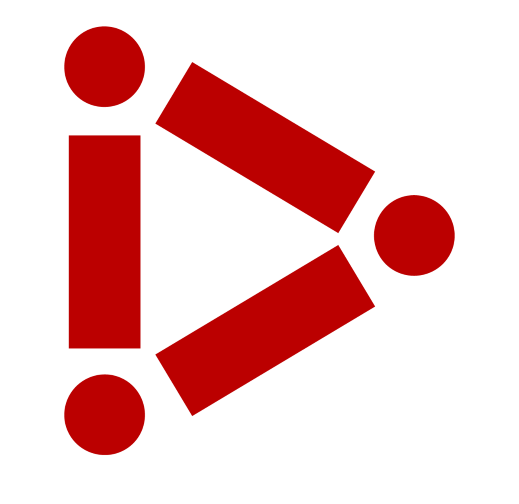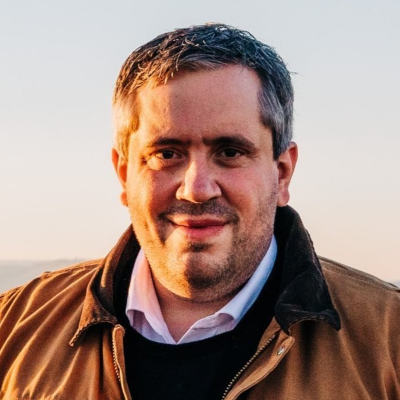Alumni Spotlight - Dan Maycock (MSSM '09)
Principal, Loftus Labs
Industry: Agriculture Technology / Business ("AgTech")
iii: Why did you enroll in the MSSM Program?
It's a whole combination of things. I didn't have quite the development chops to get into software engineering and realized that I wanted to manage the people working on software rather than being an individual contributor in that space. MSSM had a tech-MBA feel. It was in Silicon Valley, which was appealing to me since I didn't want to fly to Pittsburgh multiple times a year. Carnegie Mellon obviously had a great reputation from a technical standpoint. I went to a less known state school so I thought it would make up for it. Also seeing a lot of Carnegie Mellon alums around me at Boeing really impressed me, too. MSSM got me introduced to Silicon Valley and plugged in, and the networking was great. And, it turns out, I keep in touch with a number of my alumni friends from 2009. I just kind of fell in love with the concept of the model and what I'd get to do. It was probably one of the better professional decisions I've made in my career.
iii: Tell us about your career trajectory since graduating in 2009.
I’ve worked in 18 different verticals in different areas and have been in advanced analytics and data for 15 years now. Most of the things I do are about maximizing what I have done to what I want to do. If I'm not useful, I have no problem leaving and then finding something else.
So I bounced around a lot – Boeing, consulting, a startup, Capgemini, another startup.
Then I went to Amazon and headed up Alexa Analytics for a year. I was working crazy hours. We had our second kid, and my wife was just kind of done with Seattle. We looked at moving back to eastern Washington, and I started to the see the opportunity in agriculture. I saw that the area I grew up in was 10 or 15 years behind everyone else. With my background, I knew that I could contribute to updating farming practices. So I moved to a farm in the Yakima area.
My third startup – Loftus Labs - launched in November 2020 and is a data consulting company focused on agribusiness. I'm the Principal and Head of Engineering and BI Analytics, working a lot with tech companies who are starting to embrace Ag with their own groups: Microsoft, Intel, F5 Networks, Google, Amazon.
I wanted to get into a successful startup. It took a couple of years to figure out what that would look like. But it worked out and has turned out to be more meaningful of an experience than I'd ever thought professionally.
iii: So what does "Ag Tech" mean and encompass?
It’s helping owners and growers make better and faster decisions around farming. Now, we're not replacing farmers; we're not replacing owners; we're not trampling on hundreds of years of domain knowledge. We're making decision support easier and making decision information faster. Everything in Ag Tech is about more scale, better yields, and lower costs.
As an example, water is a huge deal in California. So, let’s say, I’m a farmer. I look at my evapotranspiration forecast Sunday, figure out evaporation rates, and program my pumps on when to irrigate. Weather fluctuates so I must recalibrate throughout the week. But if I have water moisture sensors in the soil that feed to my forecast and make automatic adjustments to IoT-controlled pumps, the decision is made for me. I’m more precise and spend less effort around water. To do that is like four different Ag Tech solutions – IoT, wireless connectivity, embedded control systems, decision support, machine learning – all cutting-edge, high-tech stuff tied to what seems like a simple question: What do I water and when?
iii: Why should students (and alumni) sondier working in your industry?
A lot of people would think a job in Ag is making sacrifices for the greater good. It’s been such a better experience with more opportunity. Not nearly enough people are coming over here to help out. You find anyone doing anything right now [in tech], there's an application for it in agriculture. It’s the only thing out of many verticals that we touch every day and care about. We can live without Facebook and Amazon. We can't live without food.
Ag should be looked at side-by-side with the high-tech jobs or Silicon Valley life or whatever else. It’s not quite the same polish as getting Amazon on the resume, of course, and I get some of that. But what's the resume for? It’s just to get the next job. When you're in this world and agriculture, you don't need to bounce around as often. If you want to work for big companies, there's huge companies in Ag. It tends to be very entrepreneurial with a lot of startup collectives and a lot of venture capital focused here.
iii: What most excites you about your work?
Literally what we're doing is going to save the world. Not to come off as hyperbolic, but we're going to lose 40% of our farmland in the next 50 years. We have to feed 70% more people with all the areas that will be impacted by climate change. You can't go more than four days without eating something. So we need innovative solutions to help farmers scale their operations and to introduce technology to compensate for the fact that we're probably not going to do everything we need to do to counter climate change.
We're going to deal with a lot of environmental instability, and that's going to hit farmers the hardest. So few of us in the professional world get to say what we do actually makes a difference in the grand scheme of, you know, human survival. It’s a unique time in history where we need all the help we can get in the Ag space. Being able to make that a viable career is a big deal.
iii: What career advice do you have for students?
It sounds cliché, but don’t chase money. Don’t chase status. There’s always going to people who have more success and money than you. I was addicted to chasing the next thing and getting in the rat race, getting promoted, Forbes 40 Under 40, blah, blah, blah. You sacrifice a lot to be at that level. We can only achieve so much with the time that we have. We all end up in the same place so just focus on the right things – whether you’re an alum or a student: have fun, make a difference, and care about the people around you. I didn’t realize that until I got away from it all and moved 30 minutes from civilization in the middle of the state. I couldn’t be happier. I think most people are like that but may just never get that experience: going from running Alexa Analytics to living on a farm. So, as a guy who has been there, done that, I’d say that’s the biggest takeaway: Get perspective earlier in life. You’ll end up with less gray hair if you do that.

